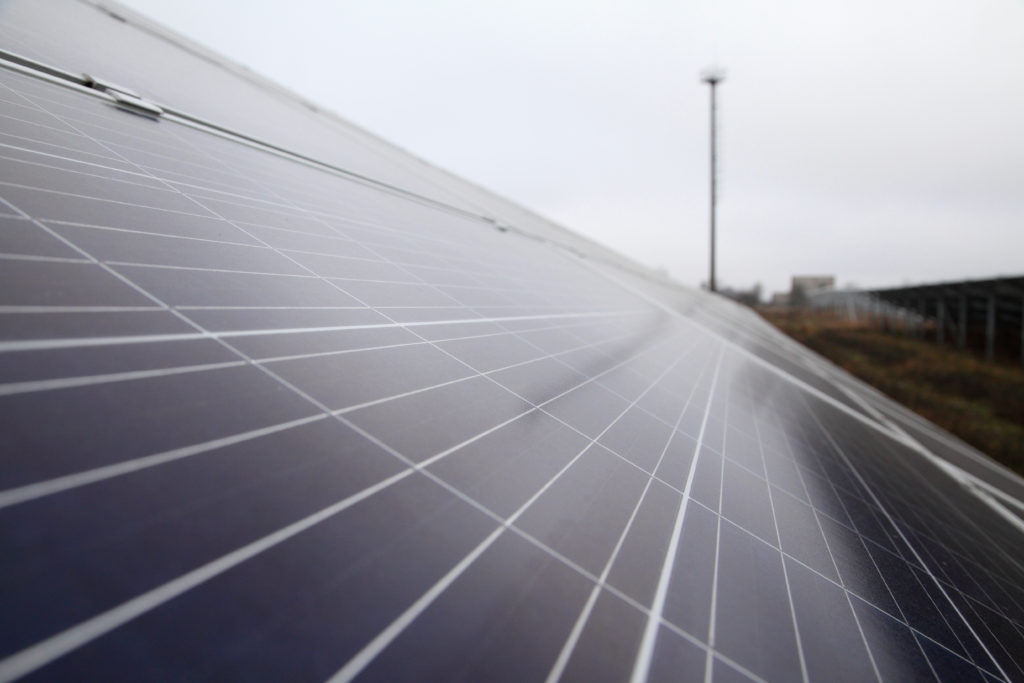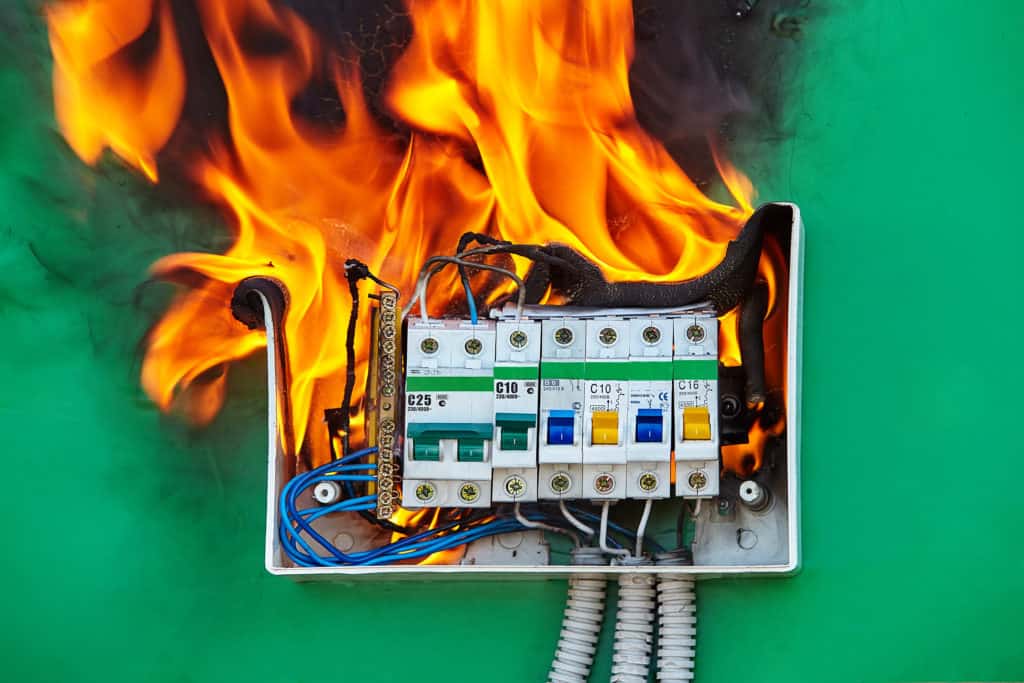
As a cautious society, we tend to look into all the possibilities of failure as well as weigh out our options and make decisions. Solar panels are a big investment, and understanding their possible failures is important to making a decision to pay for them and install them on your roof.
Solar panels will not cause power surges, but just as with other electrical appliances, they can be effected by them and need to be protected from high voltage which results from surges. The likelihood of power surges causing trouble is small.
Often times, the first thought of failures with solar panels and their involvement with the sun and electricity is fire, lightning, and power surges. Generally, solar panels are not very accident prone, and when properly installed and maintained they will not cause many problems.
Prevention of Power Surges
“A power surge, also called a transient voltage, is a generally short increase in voltage that’s well above normal levels. Voltage can be thought of as electrical pressure. So just as too much water pressure will burst a garden hose, too high a voltage could damage electronics” Source.
Power surges comes from a variety of places, the most common ones being the powering-off of a large appliance like a refrigerator. It could also take place due to the power company turning on and off the power because of problems or maintenance. Lightning is also a major cause of power surges.
Preventing power surges is important. Occasionally take the steps of inspecting the wiring within your home, making sure there are not faulty connections, rooted or chewed wiring, or water logged wiring. This includes the wiring on your solar panels, between them, and the ones connecting them to the power box and to your home. “There are two crucial elements involved in the protection of PV systems from the damages of lightning surges: proper grounding and the installation of surge protective devices. Without proper grounding and protection, damage can be sustained at nearly any point in the equipment chain from the photovoltaic panel onward” Source.
Other Potential Dangers
Solar panels only bring minimal danger. Just as a fridge, oven, dishwasher, and propane grill pose threats to your home, solar panels do as well but very minimally, but it is important to understand the risks and take precautions and work on prevention.
Fire

Rarely do you hear of solar panels catching fire. There is a very small possibility, but it is doubted you will ever have to face it. As a matter of fact “when installed properly, solar panels will not cause fires, a claim backed by a 2013 German study that concluded only 0.006% of the 1.3 million photovoltaic systems in the country at the time caused a fire” source. The main reasons a fire could take place is because of failed installation, and electrical disconnect, or poor manufacturing. Of the few solar panel fires recorded, it ended up an electrical fire that started in a box before the lines traveled to the inverter.
To prevent this from happening, hire a proper installer to be sure all the connections are safe and that the electrical box is properly situation. As you do this, and invest in high quality materials you are likely to avoid such an occurrence. Also be sure to maintain the cleanliness of your panels by dusting them off and removing any leaves or other debris that could catch fire more easily.
Lightning

Lightning can also be cause for concern as most solar panels are set up in lightning prone areas like rooftops and wide open fields. Lightning can cause a variety of problems within solar panels, not only leaving them with holes and frying the solar cells. It can also mess with the meter of productivity and start telling you incorrect statistics about what your system is producing. It can burn holes in the equipment, or cause explosions which could destroy an entire system. This doesn’t happen all too often, but to try and prevent such consequences be sure that your solar system is grounded.
Solar Panel Safety Mechanisms
As mentioned before, there are a couple of great safety precautions you can use to ensure that appropriate measures are taken to keep the system and you home as safe as possible. These will not only help to prevent, but if something did occur something would be there to lighten the blow. As you have noticed from above, electrical surges originating from within the home can be avoided by checking your wiring and having new appliances. That is something you have more power over, while some of the most tragic of power surges take place because of lightning, whether it be near or far. It is the main culprit of power surges that destroy solar panels and other appliances. Below are some things we can do to soften the blow:
- “‘Grounding’ basically means connecting your solar electric systems to the earth so that excess and dangerous electrical currents can be diverted away from your home and appliances and dispersed into the ground instead” Source. Setting up a grounded rod should be done by a professional to ensure it will help in the case of a lightning strike.
- Surge Protection Devices (SPD’s) are also an important aspect of protection. Some states require you to have these installed on your whole home to protect from surges. “SPDs work by detecting voltage spikes and diverting excess current through a grounding path.” Source. Where lighting is prominent, or for extra protection these should also be a consideration for your solar energy system.
- Rapid Shutdown Mechanisms are also an essential part of your solar energy system. “Automatic shutdown procedures are triggered when AC current is no longer flowing to inverters, indicating that the attached electrical systems are not working as expected. Therefore, in the event that your home electricity system has been damaged, your panels will automatically shut down to prevent health hazards or further damage” Source. These are now required by law in most places and will help to further protect you and your home.